- Home
- Iris Murdoch
The Red and The Green Page 3
The Red and The Green Read online
Page 3
The connection between the two ideas in fact went, for Andrew, deeper than anything suggested by the casualty lists. He profoundly feared the notion of the sexual act, and whenever he imagined himself doing that to Frances he felt appalled incredulity. This act, an act of terrible violence involving the destruction of both the aggressor and the victim, seemed something quite separate from his old deep love for Frances, and separate even from the uneasy excitement which he had felt during the last week at living in the same house with her and accompanying her as far as her bedroom door. It was as if the act in question would have to be committed in a clandestine manner, like a secret murder. He could not imagine it as a part of ordinary life, and as the scarlet dart flew nearer and nearer he had times of feeling most dreadfully afraid.
Another consideration which joined the two fearful ideas together and made him confused and frightened about what was to come was a vague sense that people surrounding him, his family, perhaps society, expected him to make Frances pregnant before he was sent to the Front. An old aunt had practically blurted out something like this in his presence; and he divined some such thought in the mind of his mother, who was in some ways ambivalent about his relationship to Frances. This sort of dubious ‘survival’, offered as a kind of duty, made Andrew upset in a rather self-pitying way which he usually avoided. He wanted to live and be happy with Frances himself and to be under no obligations of that sort to the human race or even to her. He felt too, in these moods, hustled, and more inclined to procrastinate about the whole business. However, the moods soon passed, swept away by his sheer tenderness for the girl and his increasing sense that this was the moment to settle his destiny, or rather to confirm a settlement which seemed to have been so felicitously made long ago.
Andrew’s mother was very fond of Frances, but had sudden little sharp bursts of hostility towards her, as he imagined she would towards any girl that Andrew proposed to marry. Frances let them pass, shaking her head like a pony, which she in many ways resembled, and Hilda would at the next moment be especially affectionate. Andrew was exceedingly fond of his mother, sometimes he felt alarmingly fond of her, although she exasperated him extremely almost all the time. He disagreed with her views on everything and her ambitions made him shudder. He particularly disliked the social half-truths which she constantly told as a matter of instinct. She would imply that she had attended gatherings of which she had only heard, and when in Ireland would portray the glittering nature of her London social life in a way which amounted to serious misrepresentation. He flattered himself that he could observe with a sharp eye the world which so dazzled his mother; yet while he blushed for her vanity he could not see her as corrupted.
He had, in the past, felt a good deal of nervousness on the subject of whether his mother would think that Frances, an untitled, unfashionable girl, who had never even properly ‘come out’, was good enough for him. He had gradually with relief become aware that Hilda regarded Frances as a rather special young person. He only subsequently realized that there was a particular reason for this. Christopher Bellman was extremely rich. Children are usually oblivious of any except the most evident differences in wealth, and Andrew had only lately acquired an adult awareness of how much, in that sense, particular men had ‘behind’ them. He felt this awareness to be an onset of worldliness, especially when he noticed that such knowledge did in some way alter his view of people. But of course he had loved Frances and even wanted firmly to marry her long before he had apprehended her as an heiress. He was only thankful that this fact about her seemed to pacify his mother completely, who otherwise would certainly have been on the warpath in London in ways which would have greatly displeased him. He excused this covetousness in her, as he excused in himself a certain quiet satisfaction at the idea of marrying, quite accidentally, a rich girl: his parents had always been very poorly off and Andrew was just at an age to appreciate how inconvenient this was.
His prospective father-in-law, Christopher Bellman, was still a rather obscure and alarming figure to Andrew. He was constantly surprised to see how easily his mother managed to get on with Christopher. It was as if she simply failed to notice that he was a dangerous animal. It was indeed the spectacle of Hilda and Christopher gambolling together that most especially brought home to Andrew what seemed to him an adult insight: that someone can seem, and in fact be, quite different with one person from what he is with another. It was as if Hilda’s mechanism was simply not designed to pick up a whole range of rays given off by Christopher, to which Andrew was sensitive and which led him to find Christopher ‘dangerous’. Andrew thought that it was also very adult of him not instantly to dub his mother, for that reason, deficient. But neither did he, as he would when younger have done, regard her as daring. He searched rather for irrational features in his own attitude.
Christopher was in fact English, though Irish by adoption through his wife Heather, and an Irish ‘enthusiast’ in a way which sufficiently marked him as an alien. When younger he had worked in the Civil Service, first in London and then in Dublin, but had retired in middle life to devote himself to scholarship, wherein, Andrew noticed, he concealed his systematic seriousness under an air of dilettante trifling. He was an expert on the antiquities of Ireland and possessed a large library on the subject, destined in his will for Trinity College, Dublin. He was familiar with Gaelic, although he had never joined the Gaelic League and was hostile to the wholesale cultivation of the Irish language which had come to be, for many of his acquaintances, such an important political end. He knew a good many of what he called ‘the Irish Ireland mob’, but kept aloof from all politics and controversy. Andrew judged him, though not always confidently, to be a cold man. Yet his pursuits were harmless, he was obviously very attached to Frances, and had always encouraged Andrew.
Sometimes Andrew, forever making little of his fright, decided that it was simply Christopher’s appearance that unnerved him. His future father-in-law was very tall and looked anything but English. He might have been southern French or even Basque. He had extremely black hair and large dark eyes and a long thin very red mouth. He had always been cleanshaven, with a dulled sallow complexion. His longish hair was looped back behind his markedly pointed ears and his bushy triangular eyebrows met and grew for a considerable way down the bridge of his narrow and slightly hooked nose. The brow was prominent, yellower than the rest of the face, and much scrawled over with fine wrinkles, so that it sometimes seemed that he was wearing a cap pulled down to eye level. This gave him a secretive air. Yet he managed to look handsome and even young, and his eyes, always rather cautious and watchful, were very often humorous. Perhaps it was simply that Andrew suspected that Christopher was frequently laughing at him. He felt, however, an immense respect for Christopher, for his learning and for his rather mysterious detachment. Exhorted for some time to call him by his Christian name instead of ‘Sir’, he had found this difficult.
Andrew had by now almost finished dealing with the swing. It had not been a complicated operation, but he had dreamily prolonged it, simply glad to find himself mechanically occupied. The ropes were securely knotted on to a projecting bough of the big chestnut tree which stood beside the lawn, and as they chafed to and fro they dislodged a light dusting of bark which descended on to Andrew’s blond head in a peppery rain, making him sneeze. The ropes slipped neatly through the slots in the seat and were knotted together below. Andrew had mended an incipient crack with a slat of wood and filled up a hole with putty. The red-and-white painted surface was as bright as he remembered it, the central spot of scarlet in those green childhood scenes, polished by many childish posteriors into a warm soft glow. He was rubbing it over with his sleeve, almost as if for some magical evocation of the past, when he caught sight of Frances coming from the house to call him in to tea.
A number of blackbirds, who had been threatening each other upon the lawn, flew up at her approach. The garden was in that disturbing expectant condition of the spring when everything is exuberan
tly leafy but nothing is in flower. All was green, that particularly pale vivid, damp-looking green which emanates from the Irish soil or is perhaps elicited by the dark brightness of the Irish light, a green washed over with silver. The slender spears of montbretia which fringed the house, the pallid waxy stripes of hemerocallis, the fuzzy shifting masses of fuchsia gave to the scene something of the air of a lush reedy water meadow. Against this dense vegetable harmony Frances advanced, wearing a full-skirted dress of white spotted voile and Irish lace with a wide sash of mauve satin. Andrew, who had been drooping lazily, sprang to attention, his glance darting involuntarily to her ankles which the new fashion left clearly visible
Frances was a small girl, inclined to plumpness, with something distinctly bouncy or frisky in her gait. Andrew had once punched another boy who called her ‘dumpy’. There was in fact a brightness and vitality in her which forbade such a description. She had more the plump grace of a pretty pony. She had Christopher’s dark hair which, travelling to a complex bun behind, was looped over her ears just like his. She had, too, his long mouth and the large prominent brow about which she could never decide whether to hide it or to reveal it. But the slightly exotic look which in Christopher suggested the south, gave to Frances an almost gipsy appearance, or perhaps rather she just looked Irish, of the Irish of Ireland, wide-faced, a little tousled, with a long powerful smile.
Without speaking to Andrew she hopped at once on to the swing and began to urge herself to and fro. The ropes groaned upon the bough and the chestnut bark descended like black confetti on to her white dress. It began very mistily to rain.
Chapter Two
‘WHAT’S on at the Abbey?’
‘Some stuff by W.B. Yeats.’
‘The Countess Cathleen, man? I don’t think we feel strong enough for that, do we. What about the Gaiety?’
‘D’Oyley Carte. I believe it’s The Yeoman of the Guard.’
‘Well, we might go there. Only don’t forget my furniture is arriving at Claresville on Thursday.’
It was about half an hour later and tea was nearly over. They were sitting round the low wickerwork table in the conservatory, while outside the garden was being caressed or playfully beaten by the light rain which drifted a little in the breeze from the sea. Rain in Ireland always seemed a different substance from English rain, its drops smaller and more numerous. It seemed now to materialize in the air rather than to fall through it, and, transformed into quick-silver, ran shimmering upon the surface of the trees and plants, to fall with a heavier plop from the dejected palms and the chestnut. This rain, this scene, the pattering on the glass, the smell of the porous concrete floor, never entirely dry, the restless sensation of slightly damp cushions, these things set up for Andrew a long arcade of memories. He shifted uneasily in his basket chair, wondering how long it took to develop rheumatism.
Christopher had lighted his pipe, Frances was sewing, Hilda, without occupation, was sitting very upright as if the organization of the party had suddenly fallen upon her. Her hair, a pale blonde striped with grey, rather scanty and silky, pulled well away from the face and banded by a black velvet ribbon, looked like a neat cap, and she appeared older than her age. Her face, lightly wrinkled or rather perhaps crumpled, was a uniform colour of soft parchmenty gold, and often gave the impression of being weather-beaten or sunburnt, although Hilda in fact shunned the open air. The large straight nose and rather stern dark-blue eyes completed the picture of a person of authority, although an inherent vagueness in Hilda’s principles made her in practice a less commanding person than she seemed.
‘I’m longing to see your house finished,’ said Frances.
‘Thank God you didn’t buy that crumbling pile at Dun-drum,’ said Christopher. ‘I’d have had to help you keep it upright, and it would have been a full-time job.’
What about me? thought Andrew, with a sudden pang, but then decided that he was being morbid.
‘Kathleen said she’d find me a maid. I gather one has to pay ten shillings a week now.’
‘And most of them would steal the cross off an ass’s back and can’t be trusted to cook anything but rashers and eggs!’
‘Oh, I’m good at training servants. I had a perfect little jewel in London. And of course I shall have the telephone installed.’
‘The telephone is fine here if you only want to talk to the exchange! Have I convinced you on the motor car question?’
‘Yes, Christopher. I think after all it would be foolish to buy a motor car just now. There are too many difficulties. I hear Millie has just bought a Panhard. She is so extravagant.’
Andrew knew quite well that his mother was aware that she could not possibly afford a motor car.
‘We might think in terms of a pony and trap, though. After all, one must get about. And when the war is over I shall certainly purchase a touring car. Andrew shall learn how to operate it.’
A Vauxhall Prince Henry, thought Andrew dreamily to himself. When the war was over he would have money to spend. It was nice to think that he had a rendezvous in the future with a Vauxhall Prince Henry.
‘I think I shall always stick to my bike,’ said Christopher. ‘The bicycle is the most civilized conveyance known to man. Other forms of transport grow daily more nightmarish. Only the bicycle remains pure in heart.’
‘I was very relieved Andrew didn’t want to go into the Flying Corps,’ said Hilda, speaking as if her son were not present.
‘What’s on tomorrow, Aunt Hilda?’ asked Frances, revealing a long straight row of white teeth as she bit a length of thread off from the spool. Andrew’s mother had always been content with this formal mode of address, which increased Andrew nomenclaturial difficulties with Christopher, since to address him familiarly in Hilda’s presence would seem a kind of disloyalty.
‘Tomorrow, my dear,’ said Hilda, with the confiding eagerness she always evinced over any social plan, however trivial, ‘tomorrow Andrew goes to tea at Blessington Street. I can’t manage it, I’ve got to be at Claresville then to see the builder. You’ll go with him, won’t you?’
‘I don’t mind,’ said Frances. ‘I like to watch Cathal growing up. He looks entirely different now every time I see him.’
‘He’s such a big boy. It’s hard to believe he’s only fourteen. Children grow up so much more quickly nowadays. You’ll go along too, Christopher?’
‘Please not. That house depresses me. And Kathleen always makes me feel guilty!’
‘I don’t see why she should. But the house is gloomy, and there’s always that curious smell on the stairs. Don’t you think Kathleen has become awfully sour and self-absorbed just lately? And so dreadfully pious! Someone told me she goes to chapel every day.’
‘She does it to spite Barney,’ said Christopher, puffing his pipe, his gaze upon the quietly dripping palm trees.
Hilda, as usual, did not follow up a remark which made reference to her brother’s religion. She went on, ‘And on Tuesday, I know it’s a terrible bore, but we must go and see Millie, I did promise. She’s back from Rathblane now, it’s her time for being in town. How do you think Millie is these days, Christopher? Going downhill?’
‘Not specially,’ said Christopher. ‘She’s been hunting like a maniac all the winter.’
‘She certainly has plenty of energy,’ Hilda conceded. ‘I sometimes think she really might have been somebody if she’d been born a man.’
‘Can’t one be somebody if one’s born a woman?’ asked Frances.
‘Well, hardly in that way, dear. Though in plenty of other ways which are just as important,’ said Hilda vaguely.
‘I think being a woman is like being Irish,’ said Frances, putting aside her work and sitting up. At such moments she had an unconscious gesture of pushing back her hair to reveal her large brow. ‘Everyone says you’re important and nice, but you take second place all the same.’
‘Come, come, women have always had Home Rule!’ Christopher always jestingly set aside his daughter’s someti
mes rather ferocious attempts to turn conversation into serious channels.
‘The emancipation question is certainly a grave one,’ said Hilda. ‘I am not at all hostile to the idea myself. But there are so many values— And I’m afraid that your Aunt Millicent’s idea of emancipation is wearing trousers and firing a revolver in her own house.’
Christopher laughed. ‘That’s about it. But one must start somewhere! Will you be coming to Millie’s, Frances?’

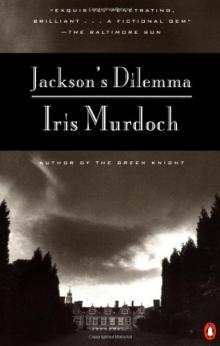 Jackson's Dilemma
Jackson's Dilemma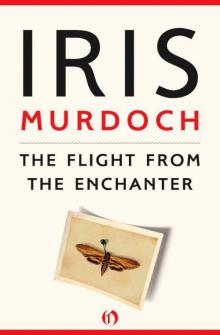 The Flight From the Enchanter
The Flight From the Enchanter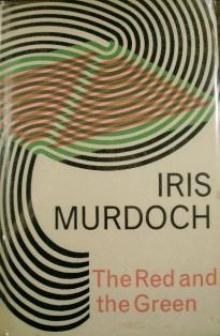 The Red and the Green (Vintage Classics)
The Red and the Green (Vintage Classics)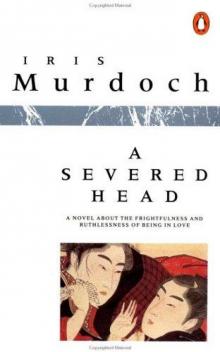 A Severed Head
A Severed Head The Black Prince
The Black Prince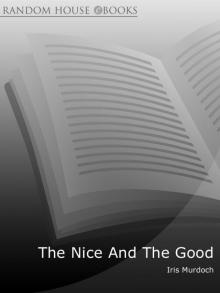 The Nice and the Good
The Nice and the Good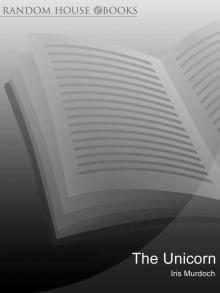 The Unicorn
The Unicorn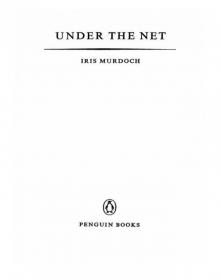 Under the Net
Under the Net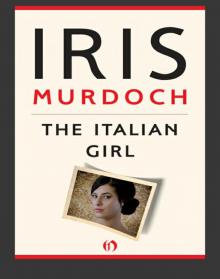 The Italian Girl
The Italian Girl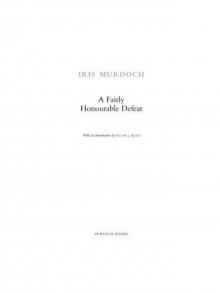 A Fairly Honourable Defeat
A Fairly Honourable Defeat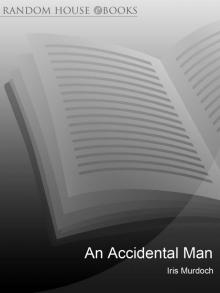 An Accidental Man
An Accidental Man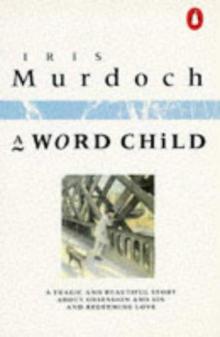 A Word Child
A Word Child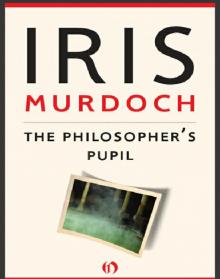 The Philosopher's Pupil
The Philosopher's Pupil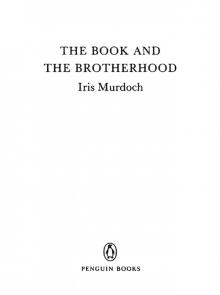 The Book and the Brotherhood
The Book and the Brotherhood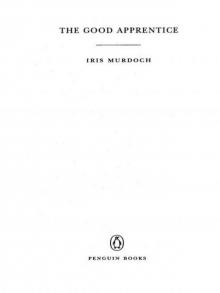 The Good Apprentice
The Good Apprentice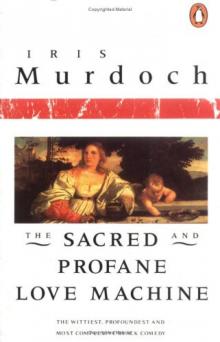 The Sacred and Profane Love Machine
The Sacred and Profane Love Machine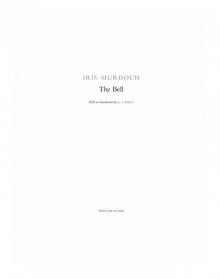 The Bell
The Bell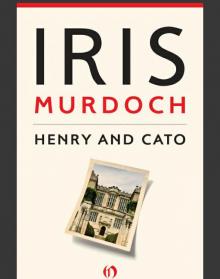 Henry and Cato
Henry and Cato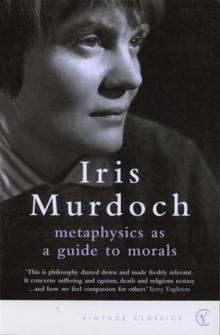 Metaphysics as a Guide to Morals
Metaphysics as a Guide to Morals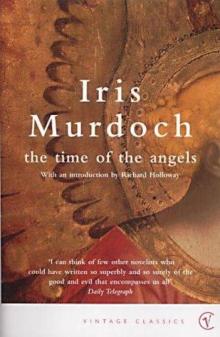 The Time of the Angels
The Time of the Angels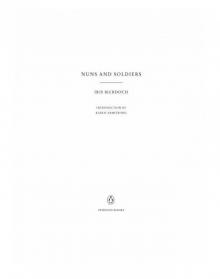 Nuns and Soldiers
Nuns and Soldiers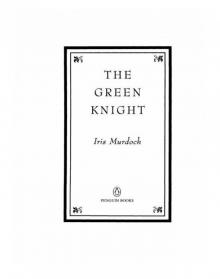 The Green Knight
The Green Knight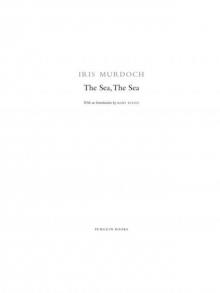 The Sea, the Sea
The Sea, the Sea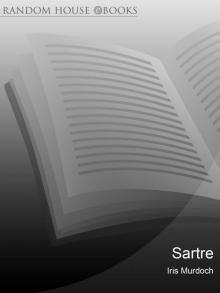 Sartre: Romantic Rationalist
Sartre: Romantic Rationalist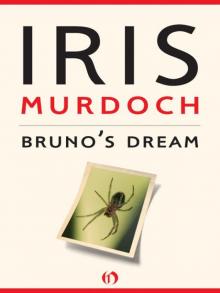 Bruno's Dream
Bruno's Dream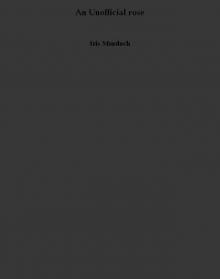 An Unofficial rose
An Unofficial rose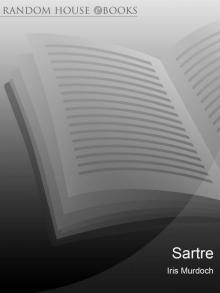 Sartre
Sartre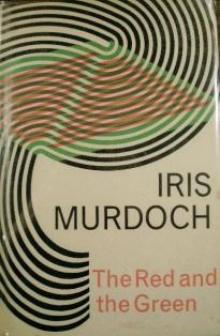 The Red and The Green
The Red and The Green